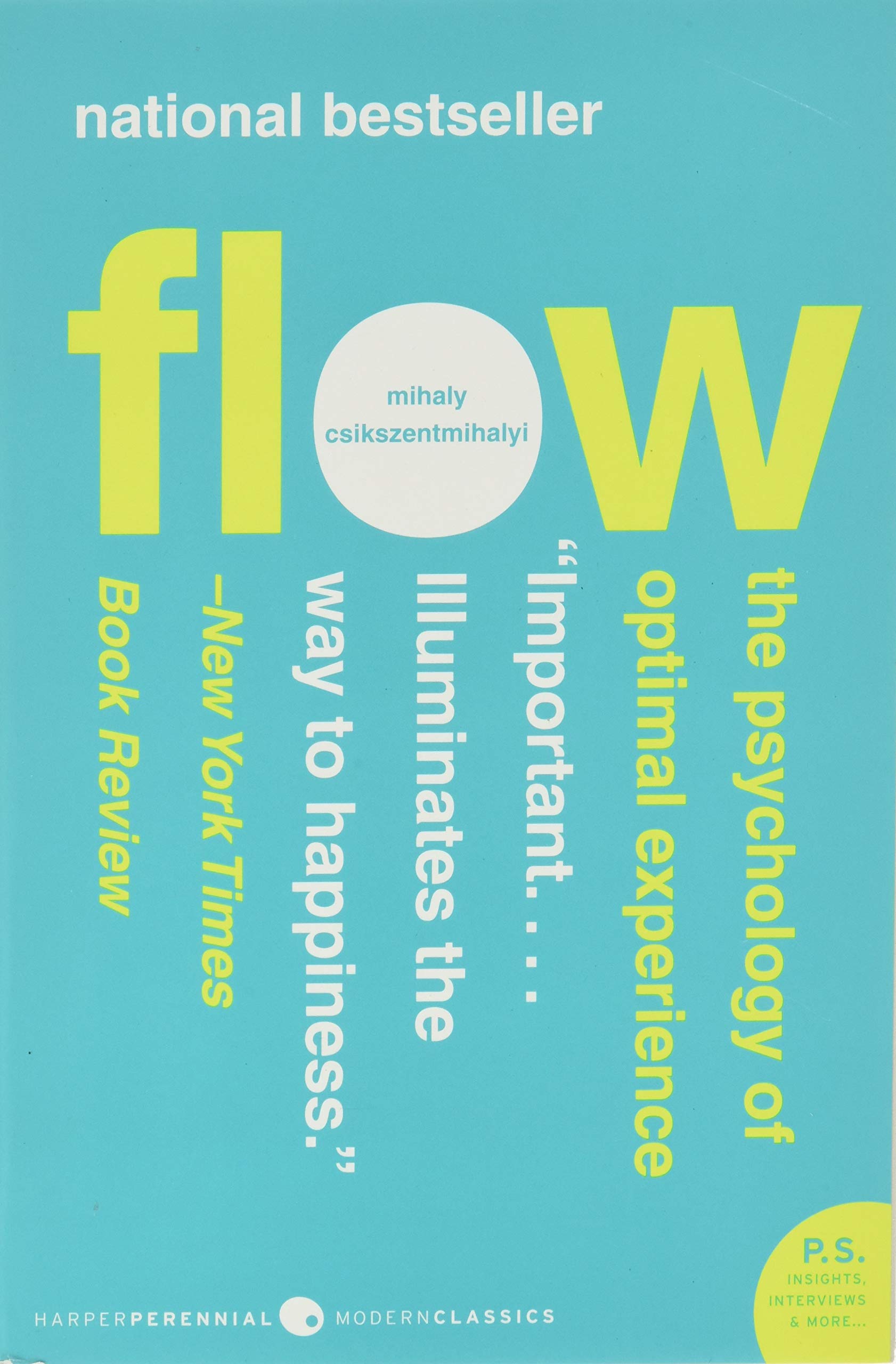📚 Flow

Book Title
Flow
(non-fiction | self-help)
Author
Mihaly Csikszentmihalyi
Review
This book delves deep into a discussion of the ‘flow’ state, which is essentially a focused state of mind that creates a deep sense of enjoyment for the task at hand. Through psychology, the author understands that people are only satisfied when they feel ‘good’ about their lives, and that the goal of getting rich or successful is not the only factor for feeling this ‘goodness’. Instead, he shows the reader that by achieving the so called ‘flow’ state, one can achieve happiness as a by-product of being present in the moment.
The following quote explains why gratitude has such a positive influence on people’s minds.
“How we feel about ourselves, the joy we get from living, ultimately depend directly on how the mind filters and interprets everyday experiences.”
It is mentioned that the ability to perceive adversity as a challenge to overcome is the most important trait for succeeding in life and enjoying each moment. Is this a personality trait that can be acquired through practice?
As much as goal setting is important, Mihaly brings to light the negative consquence of ambition.
“The problem arises when people are so fixated on what they want to achieve that they cease to derive pleasure from the present.”
The reason that distracted people are less happy is because a person can only break their attention into so many pieces.
“The limitation of consciousness is demonstrated by the fact that to understand what another person is saying we must process 40 bits of information each second. If we assume the upper limit of our capacity to be 126 bits per second, it follows that to understand what three people are saying simultaneously is theoretically possible, but only by managing to keep out of consciousness every other thought or sensation.”
Control of consciousness is linked to self-awareness, which helps one become more mindful of the present moment. Being able to observe our thoughts, and thus our feelings, is a super power - to focus without judgement.
“Memories, thoughts and feelings are all shaped by how we use it. And it is an energy under our control, to do with as we please; hence, attention is our most important tool in the task of improving the quality of experience.”
To improve the quality of our lives, Mihaly mentions two strategies:
“The first is to try making external conditions match our goals. The second is to change how we experience external conditions to make them fit our goals better.”
This resonates with me. For example, I am able to control the design of my room, whereas shared parts of the house (such as the living room) is out of my control. Thus, by letting go of unnecessary desires, the threat of a messy living room does not directly affect my happiness.
Mihaly also touches on the fact that pleasure is necessary to maintain order, but that it does not help with “creating new order in consciousness”.
“Sleep, rest, food, and sex provide restorative homeostatic experiences that return consciousness to order after the needs of the body intrude and cause psychic entropy to occur. But they do not produce psychological growth.”
Thus, to achieve a state of flow, one must either be pushed to the limits of their physical exertion, or stay highly disciplined with their mental activity. And contrary to normal belief, less energy is required once the flow state is achieved.
“activation decreased when they were concentrating. Instead of requiring more effort, investment of attention actually seemed to decrease mental effort.”
To summarize, the blueprint for experiencing flow is:
1) attention to detail.
2) set goals.
3) receive feedback to stay on track.
Similar to Eckhart Tolle’s The Power of Now, great philosopher’s found enlightenment through presence in their senses.
“Bertrand Russell, one of the greatest philosophers of our century, described how he achieved personal happiness: ‘Gradually I learned to be indifferent to myself and my deficiencies; I came to center my attention increasingly upon external objects: the state of the world, various branches of knowledge, individuals for whom I felt affection.”
I feel the most joy when I focus on my senses and direct my full attention to the external source at hand. Otherwise, if I focus on myself, I become self-conscious and lose enjoyment from the immediate experience.
“the easiest step toward improving the quality of life consists in simply learning to control the body and its senses.”
“It is difficult to notice the environment as long as attention is mainly focused inward, as long as most of one’s psychic energy is absorbed by the concerns and desires of the ego.”
“To experience psychic entropy one must concentrate on the internal disorder; but by paying attention to what is happening around oneself instead, the destructive effects of stress are lessened.”
Since without a body, we are unable to experience!
“The ultimate test for the ability to control the quality of experience is what a person does in solitude, with no external demands to give structure to attention…a person who rarely gets bored, who does not constantly need a favourable external environment to enjoy the moment, has passed the test for having achieved a creative life.”
As the ‘complexity of our culture evolves’, the increased career choices makes it proportionally difficult to commit to one single goal and experience flow. However, that does not mean that the past with less freedom of choice was better. We have a larger potential now - if we master the choice to be present.
We must learn to cooperate with the laws of nature as much as we are different from other species.
-수완-